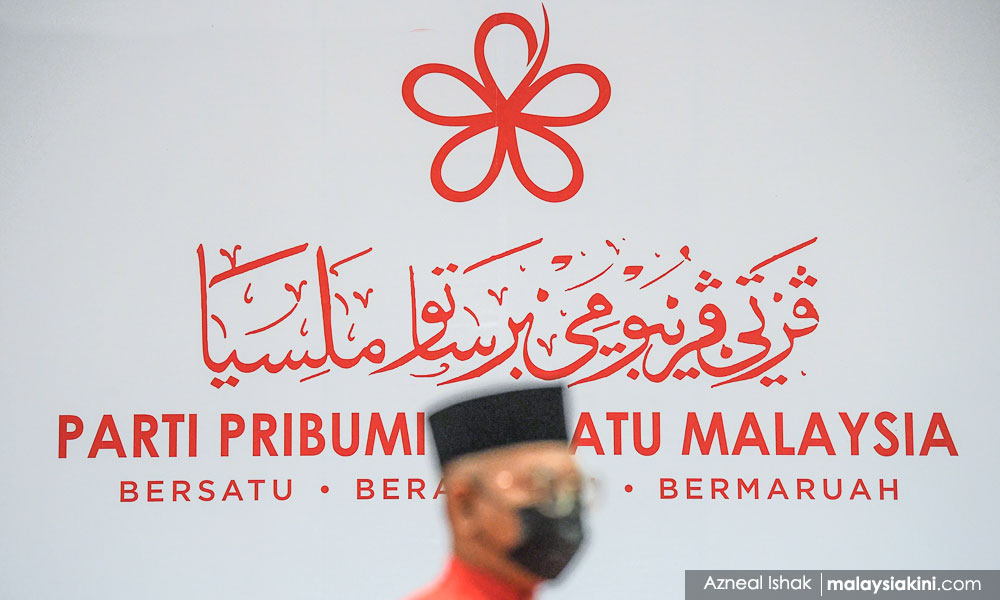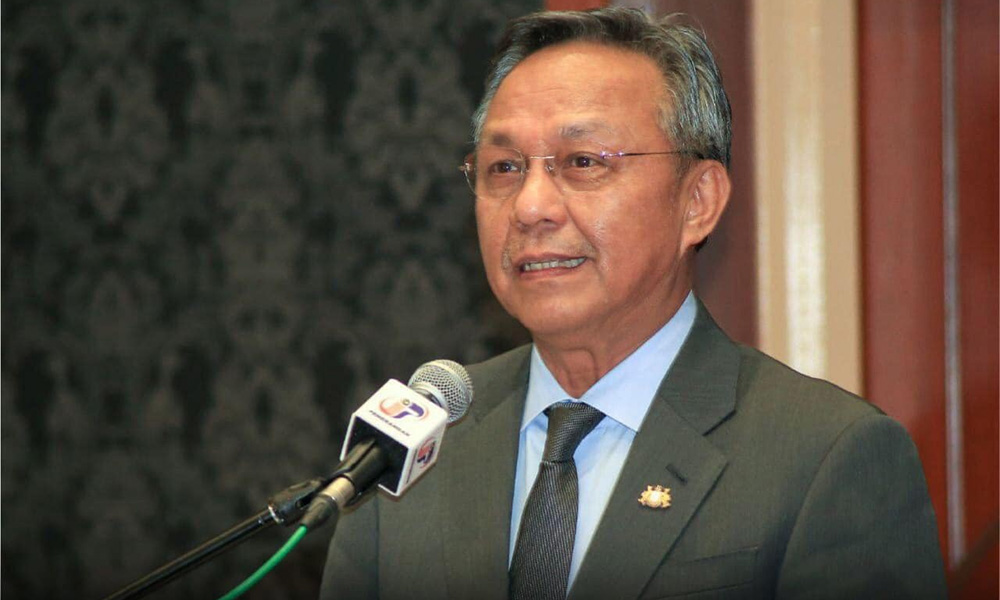What are the options before Umno and Pakatan Harapan? The decision that must be made before Wednesday may have far-reaching implications beyond Perak. Here are the three options:
Option 1: Umno-Bersatu-PAS coalition
This would be the best outcome for PAS and Bersatu but the worst for Umno.
PAS and Bersatu can prove that their "Malay Unity" narrative is supreme. Umno will be the junior partner to the two other Malay parties, even when Umno has more seats than Bersatu and PAS, not only in Perak but also in Sabah.
The logic? When two Malay parties can work together but one Malay party decides to go its own way, then clearly Malay unity breaks down because of the latter.
Make no mistake, what is at stake is beyond who gets to be Menteri Besar (MB) and state executive councillors (excos) in Perak. The real battle is the allocation of parliamentary seats in the 15th general elections between the three Malay parties and the prime minister's (PM's) post after GE15.
It is simply the question: does the ally with the most seats get the top job?
Bersatu started this rule under Harapan to grab the top jobs despite having fewer seats, in Putrajaya, as well as in Perak and Johor. This was reversed in Johor after the Sheraton Move but Prime Minister Muhyiddin Yassin scored in Sabah after the state poll, installing a Bersatu Chief Minister despite Bersatu winning fewer seats (11) than Umno (14).
Muhyiddin’s talk of having a snap general election instead of going for a full-term (30 months left) is aiming to deny Umno the top job for another five years, then making way for Senior Minister (Economy) Azmin Ali.
Umno's calculation is exactly the opposite: to win more seats and to retake the PM’s office.
Out of Bersatu’s 31 parliamentary seats, 15 were won under Umno's ticket and 10 under PKR’s ticket. Umno wants the 15 seats back and is prepared to take on Bersatu if Bersatu does not concede.

Not wanting Umno to regain dominance and threaten its own growth, PAS, which formed Muafakat Nasional with Umno after GE14, smartly sided with Bersatu and joined its Perikatan Nasional (PN).
For PAS, Bersatu looks like another Semangat 46, Umno's last splinter party that through its alliance had allowed PAS to recapture Kelantan in 1990 before biting the dust in 1996.
Perak is simply a showdown between the three Malay parties who are vying for the same conservative Malay constituency, much like three brothers loving the same girl, shrewdly brought forward by Umno with Harapan's tacit support. (Analogies here and later are not gender-specific. Readers can reverse the genders.)
This is the morning-after moment – what’s next? If the Umno-Bersatu-PAS government is restored, it means that Umno fears to be accused as the sinner who breaks up Malay unity.
If Umno is discursively controlled by the spell of Malay unity, will they dare to defy Muhyiddin’s diktat on seat allocation?
If Umno can accept its "second fiddler" role at the national level, Bersatu can reciprocate in Perak. The bad blood over the no-confidence vote can be swept under the carpet for now.
Option 2: Umno-Harapan grand coalition
This would signal the end of the Malay unity narrative and open up possibilities of Umno and Harapan’s explicit electoral pact in states like Kelantan, Terengganu, and Kedah, as well as selected constituencies elsewhere, and their post-election coalition at the national level.

This would have two far-reaching implications nationwide.
First, Umno will have to start de-demonising DAP and drop its “No DAP and Anwar” line, while likewise, DAP will have to portray Umno as a moderate force when PAS and Bersatu are taking a harder line on alcohol and liberalism.
This will both reduce a lot of hostility between Umno and DAP supporters and cause a lot of confusion and resentment amongst their hardcore. The same happened between DAP and PAS starting in 1990.
Counterintuitively, Umno-DAP may provide the basis for a more stable government because their electoral constituencies do not overlap.
Umno and DAP are like two men after two different women, they can be good friends even when the two women do not see eye to eye. They can work together exactly because they have different tastes. (Yeah, people uniting because of common taste is a fairytale in politics.)
Their challenge is how not to make extreme policy positions that both their supporter bases would reject their friendship. This means both need to moderate their policy position and be more considerate of each other’s bases. This is good for Malaysia because it would reduce the policy distances between these two parties, currently at the two ends on the ethnoreligious spectrum.
The second implication is that Umno would be fiercely attacked on the ground by PAS and Bersatu operatives.
To test and break up Umno-DAP’s new bromance, some communal conflicts may erupt to force Umno to go back to its original position and cause DAP to be accused as MCA 2.0 if it does not criticise Umno.

If you need a reminder, in a divided society like Malaysia, moderation is like low-fat milk, decaf coffee, Coke Light, and non-alcoholic beer. They may be healthier but they lack authenticity and do not appeal to consumers with strong tastes.
If the new bromance breaks up, both Umno and DAP would be harshly punished by their base because adventures are praised as genius only when successful and condemned as sins when failed.
Option 3: Umno minority government on CSA with Harapan
The third option is even more transformative but steadier. Umno can set up a minority government on its own and sign a Confidence and Supply Agreement (CSA) with Harapan.
DAP has long spelled out what it wants in exchange for supporting a government on confidence and budget votes: legislative reform, consultation on budget, and equal constituency funding.
This was ignored by Muhyiddin who believes he will do better in successive gambling than taking political insurance.
Umno can be smarter. Umno Johor has indeed shown the way. Threatened by Bersatu’s retaliation, the Johor MB, Umno's Hasni Mohammad (below), raised the opposition state assemblypersons’ constituency funding from RM50,000 to RM200,000.

He is also open to having opposition members in select committees.
In brief, Umno Johor and Harapan Johor have struck a CSA just without the name. Umno Perak can go bolder, sign an open CSA with Harapan.
CSA is actually power-sharing in the state legislative assembly rather than in the state executive council (exco).
Instead of giving three to four exco seats to Harapan, Umno can keep all of them – the power, prestige, and perks – and easily fence off any accusation from PAS and Bersatu that DAP will dominate the government.
In exchange, Umno's minority government can just set up a select committee for each of the exco's portfolios so that every opposition member and government backbencher can sit on at least one committee and scrutinise the government’s power.
Power will remain in Umno's hand but will not be abused.
Further, all state assemblypersons should receive equitable constituency funding regardless of party.
Is this not a good deal for both Umno and Harapan?
Instead of facing grassroots backlash because a sudden Umno-DAP bromance is too drastic and shocking, Umno should simply show how a minority government can work well in a multipartisan legislature.
Surely, Umno Perak has no less political acumen than its Johor counterpart, no?
More important than Perak, it would open up a path for Umno's transformative revival and a new future for Malaysia’s democracy.
WONG CHIN HUAT is an Essex-trained political scientist working on political institutions and group conflicts. He currently leads the clusters on the electoral system and constituency delimitation in the government’s Electoral Reform Committee (ERC). Mindful of humans’ self-interest motivation while pursuing a better world, he is a principled opportunist. - Mkini
The views expressed here are those of the author/contributor and do not necessarily represent the views of MMKtT,




No comments:
Post a Comment
Note: Only a member of this blog may post a comment.